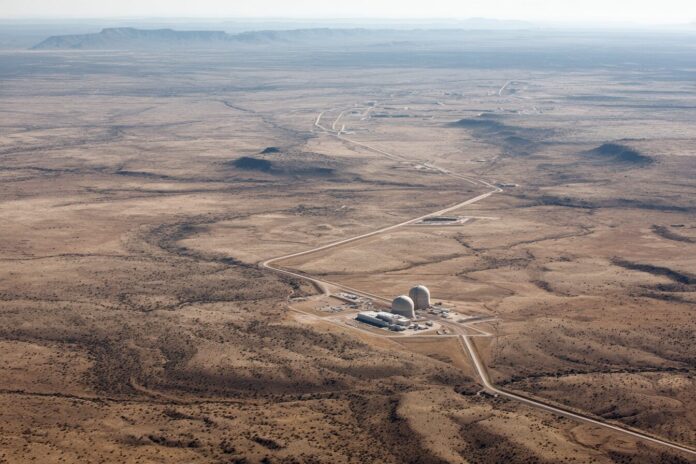America’s Nuclear Dilemma: The Recent Supreme Court Decision
Nuclear power has long been heralded as a vital contributor to the United States’ energy portfolio. Most importantly, as the country continues to invest in clean energy and expand its AI-powered data centers, the longstanding issue of nuclear waste management takes on renewed urgency. Because nuclear reactors produce a significant amount of radioactive waste, each new plant intensifies the debate on how best to handle these by-products safely.
Furthermore, the recent decision by the Supreme Court on June 18, 2025, has cast a sharp spotlight on the complexities of nuclear waste storage. The ruling underscores not only the technical challenges of safely storing spent nuclear fuel but also the intricate legal battles that emerge between federal bodies and local stakeholders. This development serves as a wake-up call for policymakers and industry leaders alike.
The Supreme Court Case: What Was Decided?
The case centered on a privately operated interim nuclear waste storage facility in Andrews County, West Texas, and involved heated disputes over regulatory authority. Because the Nuclear Regulatory Commission (NRC) had issued a license, state officials and local landowners questioned the legitimacy of the process. They argued that the NRC’s license did not heed local environmental and public safety concerns, thereby failing to meet the rigorous oversight required for such a hazardous undertaking.
In a 6-3 decision, the Supreme Court ruled that the state of Texas and local landowners were not entitled to judicial review. The majority opinion emphasized that the parties did not adequately participate in the NRC’s licensing process. Therefore, as noted in the detailed case reviews from Justia and other sources, this ruling overturned a previous appeals court decision which had momentarily halted the license approval. This outcome signals a pivotal moment for the regulatory framework governing nuclear waste storage in the United States.
Why Nuclear Waste Storage Is Such a Thorny Issue
Nuclear waste storage remains one of the most challenging dilemmas facing the U.S. today. Besides that, while the interim facility in Texas represents progress, it is only a temporary fix for a much larger problem. Most importantly, no permanent repository exists for the nearly 90,000 metric tons of spent nuclear fuel currently in storage. Because these wastes remain hazardous for thousands of years, any long-term solution must address profound environmental and safety concerns.
Moreover, experts argue that the U.S. is lagging behind nations like Finland and Sweden, which have made significant strides by developing deep geological repositories. As explained in sources such as Science News, the challenge is not only technical but also political and societal. Therefore, a comprehensive approach requires evaluating community concerns, enhancing technological innovation, and rethinking federal and state regulatory policies.
National Energy Policy at a Crossroads
Energy policy in the United States is at an inflection point. Because nuclear power plays a crucial role in ensuring energy security, the inability to develop a long-term waste storage solution poses a significant hurdle. Most importantly, the uncertainty around waste management impacts investment decisions across the sector. As a result, energy utilities and investors are left balancing the benefits of clean, reliable nuclear energy against the risks and liabilities associated with waste storage.
Besides that, the ongoing debate has broader implications for national energy policy. This ruling, as highlighted by Texas Standard, reinforces the need for a comprehensive, consent-based national strategy that accommodates the concerns of local communities, environmental groups, and industry alike. Therefore, the current crossroads points to an urgent mandate for reformed policies that can harmonize the needs of a growing energy demand with public safety and environmental responsibility.
What Happens Next?
Because the ruling denied Texas and local challengers the opportunity for judicial review, tensions between federal regulatory bodies and local stakeholders may intensify. Most importantly, dissenting justices voiced concerns that the NRC’s process was overly restrictive. They argued that proper engagement with all affected parties, including state officials and community members, was not sufficiently ensured during the licensing process. This sentiment is echoed in detailed analyses provided by Axios.
Furthermore, this decision could catalyze further legislative and judicial scrutiny of how nuclear waste licenses are issued. Therefore, stakeholders might push for a more inclusive review process that better weighs environmental, health, and safety risks. Because interim sites can only serve as short-term solutions, the need for a robust, long-term plan remains critical. This evolving scenario promises to reshape discussions around not only nuclear policy but also broader energy and environmental regulations in the coming years.
Conclusion: Will the U.S. Break Its Nuclear Waste Stalemate?
In conclusion, while the Supreme Court’s ruling represents a significant legal victory for the NRC, it does not resolve America’s enduring nuclear waste challenge. Most importantly, the decision underscores the continuing need for a permanent, science-based solution to manage the near-permanent threat of radioactive waste. Besides that, it calls into focus the complex interplay between federal authority and local interests that will shape the future of nuclear energy policy in the country.
Because the energy sector is rapidly evolving, a consensus-driven, durable solution is essential for ensuring public safety and regulatory certainty. Therefore, as stakeholders from diverse backgrounds collaborate to address this stalemate, the legacy of this landmark decision will serve as both a cautionary tale and a beacon of progress towards a truly sustainable nuclear future.
References
- World Nuclear News: US Supreme Court rules on interim storage facility case
- Science News: A Supreme Court ruling on nuclear waste spotlights U.S. storage woes
- Justia: Nuclear Regulatory Commission v. Texas
- Texas Standard: Supreme Court decision opens door for temporary nuclear waste storage in West Texas
- Axios: Supreme Court nixes Texas’ challenge of nuclear waste license



